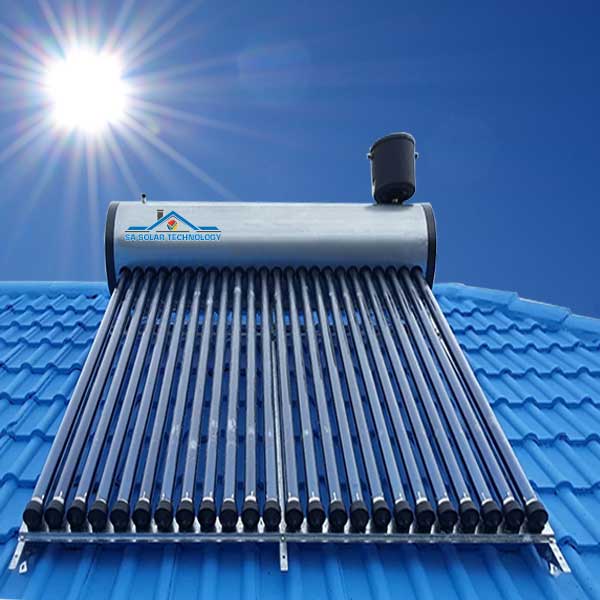Top Heat Pumps in 2024
Selecting the most efficient water heating system for your home is important for both energy savings and efficiency. Solar geysers and heat pumps have become increasingly popular as options for eco-friendly water heating. In this article, we will explore the benefits heat pumps and solar geysers for your home.

What is a Solar Geyser?
Solar water heating systems harness solar energy to provide hot water. These systems typically consist of tubes and a water reservoir. The panels capture sunlight, which is then converted into thermal energy. Solar geysers are a sustainable electricity-based systems.
How Solar Geysers Save Energy
The primary advantage of solar water heaters is their ability to save energy. Because they use solar energy, they drastically reduce your overall heating expenses. In addition to saving money, solar geysers also help reduce your carbon footprint.
You’ll get the most out of solar geysers in locations that receive ample sunlight. Even on cloudy days, many systems include supplementary heating elements to ensure you have hot water when needed.
Is a Solar Geyser Right for You?
Opting for a solar geyser is ideal for homeowners seeking an eco-friendly solution. Homes located in regions with high solar exposure can benefit the most from this technology.
That being said, you should keep in mind the upfront price of a solar-powered geyser. Although solar geysers save money over time, the initial setup can be high. You may be eligible for rebates to help reduce the installation expenses.
What is a Heat Pump?
Heat pump systems work by transferring heat from the surrounding air to heat water. Rather than creating heat, they use a refrigeration cycle. This makes them a cost-effective solution, due to their energy-saving design compared to traditional water heaters.
Advantages of Heat Pumps
One of the biggest reasons to choose a heat pump system is its low energy consumption. By using less electricity, heat pumps reduce energy usage by over 50% compared to standard electric water heaters. This leads to significant savings on energy expenses.
Along with lowering energy costs Heat Pumps Cape Town, they are environmentally friendly. Since they use renewable energy, they reduce reliance on non-renewable resources compared to traditional heating methods.
When to Choose a Heat Pump
Using a heat pump works best for people who live in moderate climates. Heat pumps are highly efficient in mild climates, but they may require additional heating support in very cold regions.
Similar to solar geysers, heat pump systems come with a higher upfront cost. However, the long-term energy savings make them a smart investment.
Comparing Solar Geysers and Heat Pumps
Whether you choose a solar geyser or a heat pump are excellent choices for cutting down on energy costs. Each system offers different benefits. Here’s how they compare:
Efficiency: Solar geysers use free solar energy, while heat pumps use electricity but are still much more efficient than traditional heaters.
Initial Investment: The installation cost of solar geysers is often higher, but they save money on energy bills in the long run. Heat pumps generally cost less to install than solar geysers.
Performance in Different Climates: You’ll get the most out of solar geysers in sunny climates, while heat pumps are suitable for regions with consistent moderate weather.
Final Thoughts
Choosing between solar geysers and heat pumps offer great benefits for people looking to reduce energy consumption. If you live in a sunny area and want to maximize eco-friendliness. If sunlight is not always available, heat pumps are a reliable alternative.
Whether you opt for a solar geyser or a heat pump, you’ll be making a smart investment and contribute to a greener planet.
